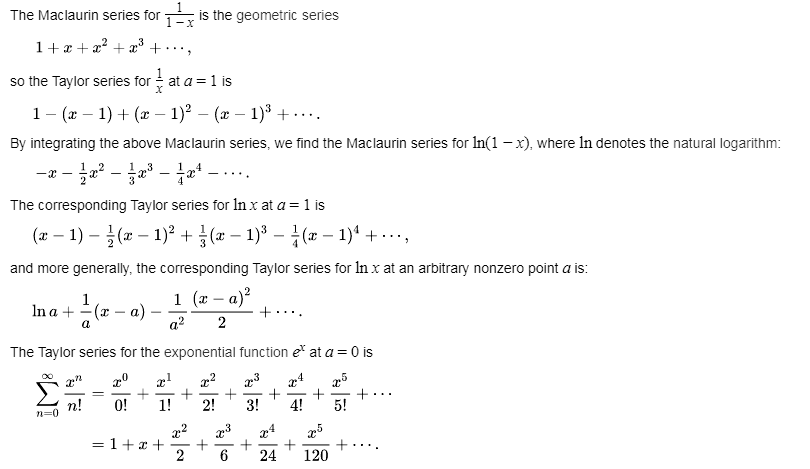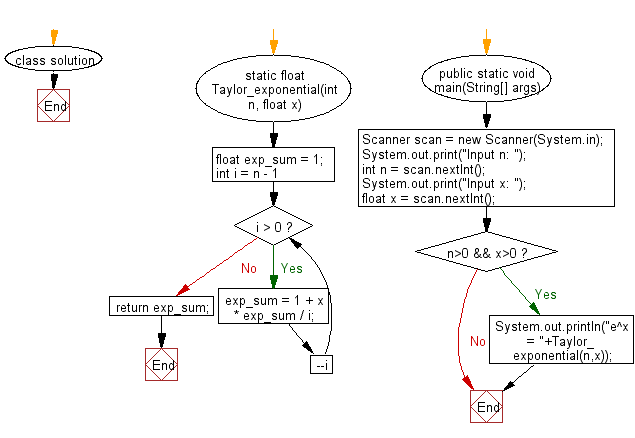Java: Calculate e raise to the power x using sum of first n terms of Taylor Series
Taylor Series for e^x
From Wikipedia,
In mathematics, a Taylor series is a representation of a function as an infinite sum of terms that are calculated from the values of the function's derivatives at a single point.
Example:
The Taylor series for any polynomial is the polynomial itself.

The above expansion holds because the derivative of ex with respect to x is also ex, and e0 equals 1.
This leaves the terms (x − 0)n in the numerator and n! in the denominator for each term in the infinite sum.
Write a Java program to calculate e raise to the power x using the sum of the first n terms of the Taylor Series.
Sample Solution:
Java Code:
import java.util.*;
class solution {
static float Taylor_exponential(int n, float x)
{
float exp_sum = 1;
for (int i = n - 1; i > 0; --i )
exp_sum = 1 + x * exp_sum / i;
return exp_sum;
}
public static void main(String[] args)
{
Scanner scan = new Scanner(System.in);
System.out.print("Input n: ");
int n = scan.nextInt();
System.out.print("Input x: ");
float x = scan.nextInt();
if (n>0 && x>0)
{
System.out.println("e^x = "+Taylor_exponential(n,x));
}
}
}
Sample Output:
Input n: 25 Input x: 5 e^x = 148.41316
Flowchart:

For more Practice: Solve these Related Problems:
- Write a Java program to approximate e^x using the Taylor Series recursively with a given tolerance for convergence.
- Write a Java program to compute e^x using an iterative Taylor Series method and compare the result with Math.exp(x).
- Write a Java program to implement the Taylor Series for e^x using Java streams to process the series terms.
- Write a Java program to calculate e^x using a recursive Taylor Series algorithm and then compute the error percentage relative to the built-in function.
Go to:
PREV : Calculate Binomial Coefficient.
NEXT : Prime Factors of Number.
Java Code Editor:
Contribute your code and comments through Disqus.
What is the difficulty level of this exercise?
Test your Programming skills with w3resource's quiz.
